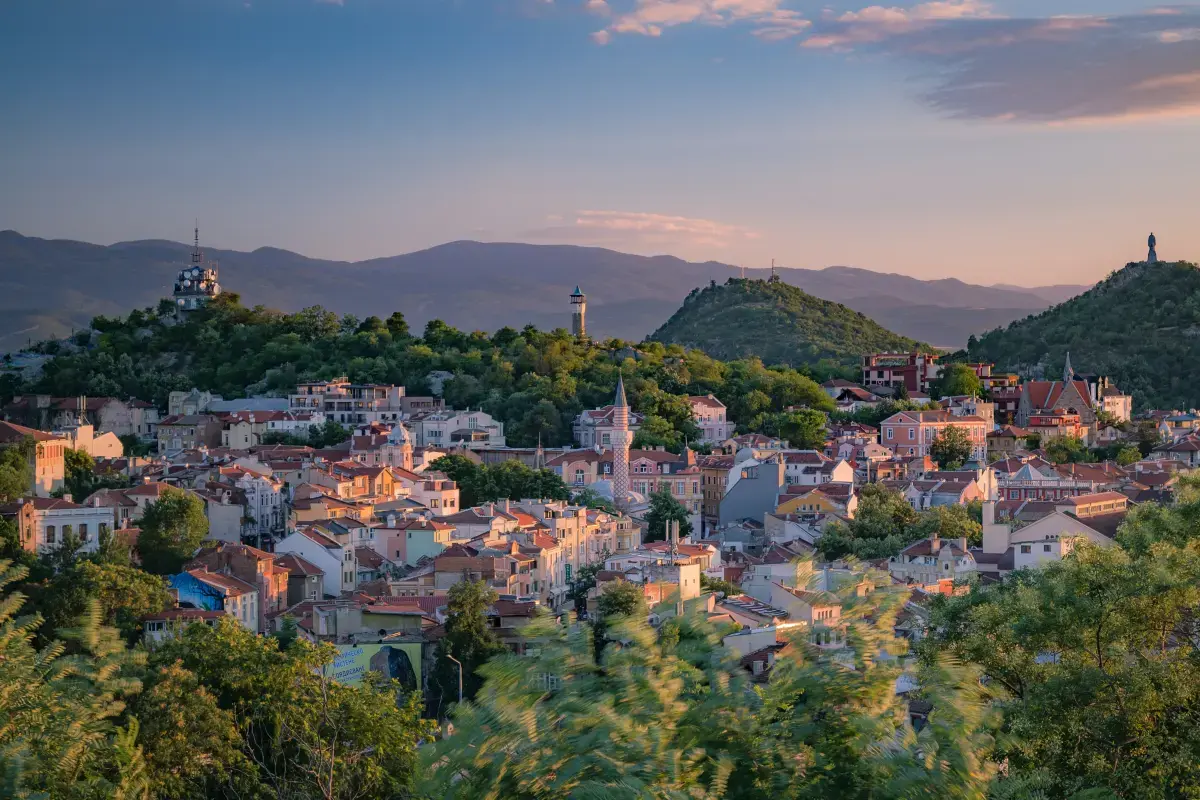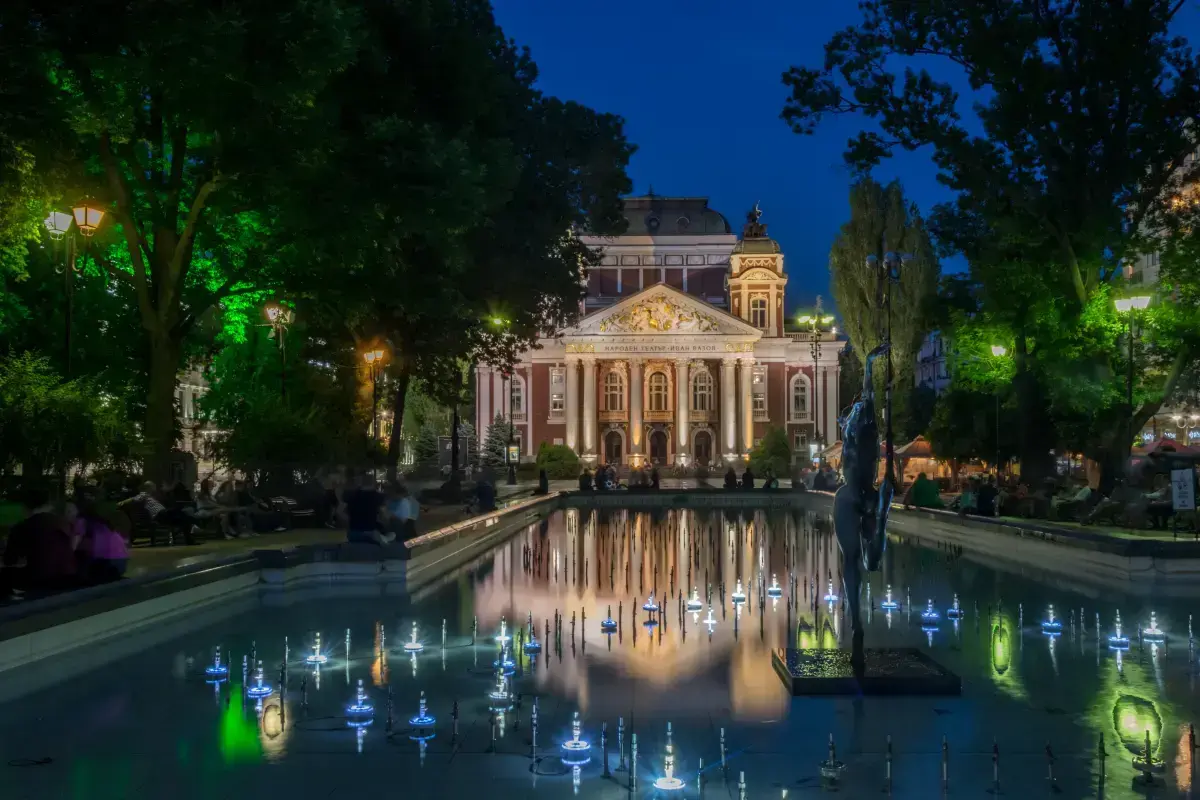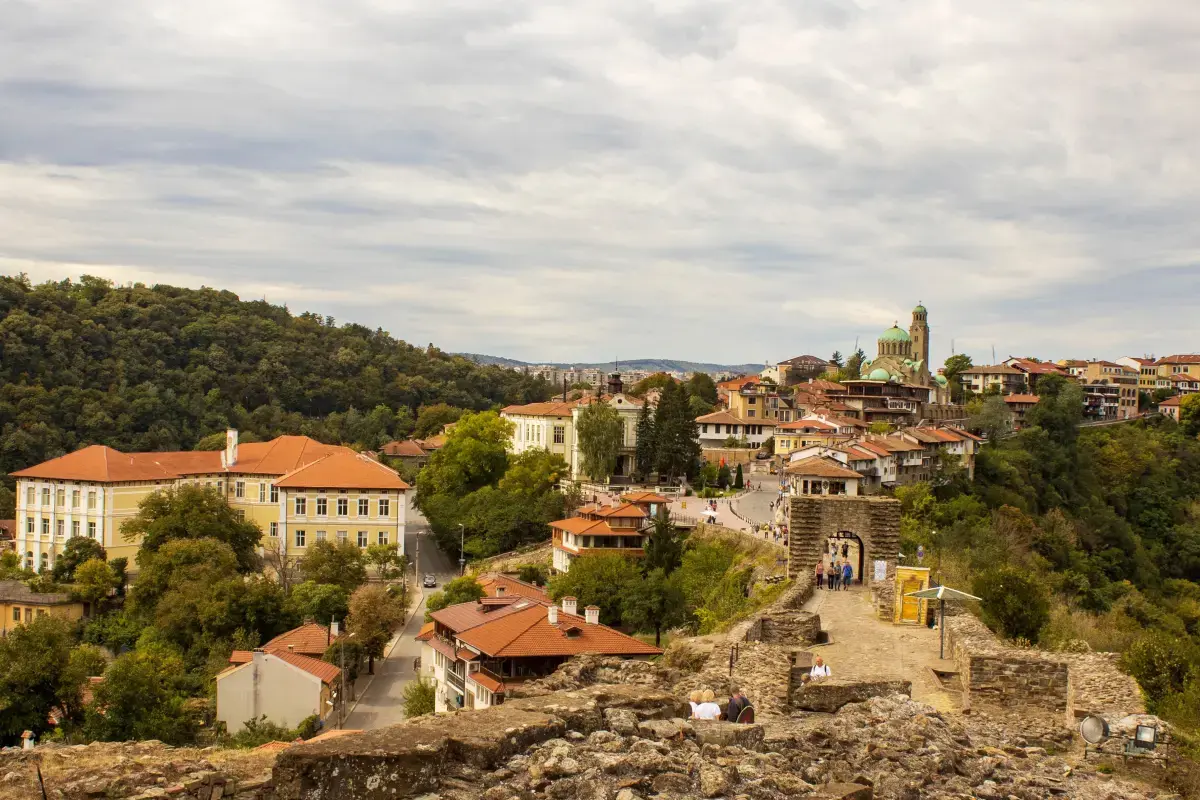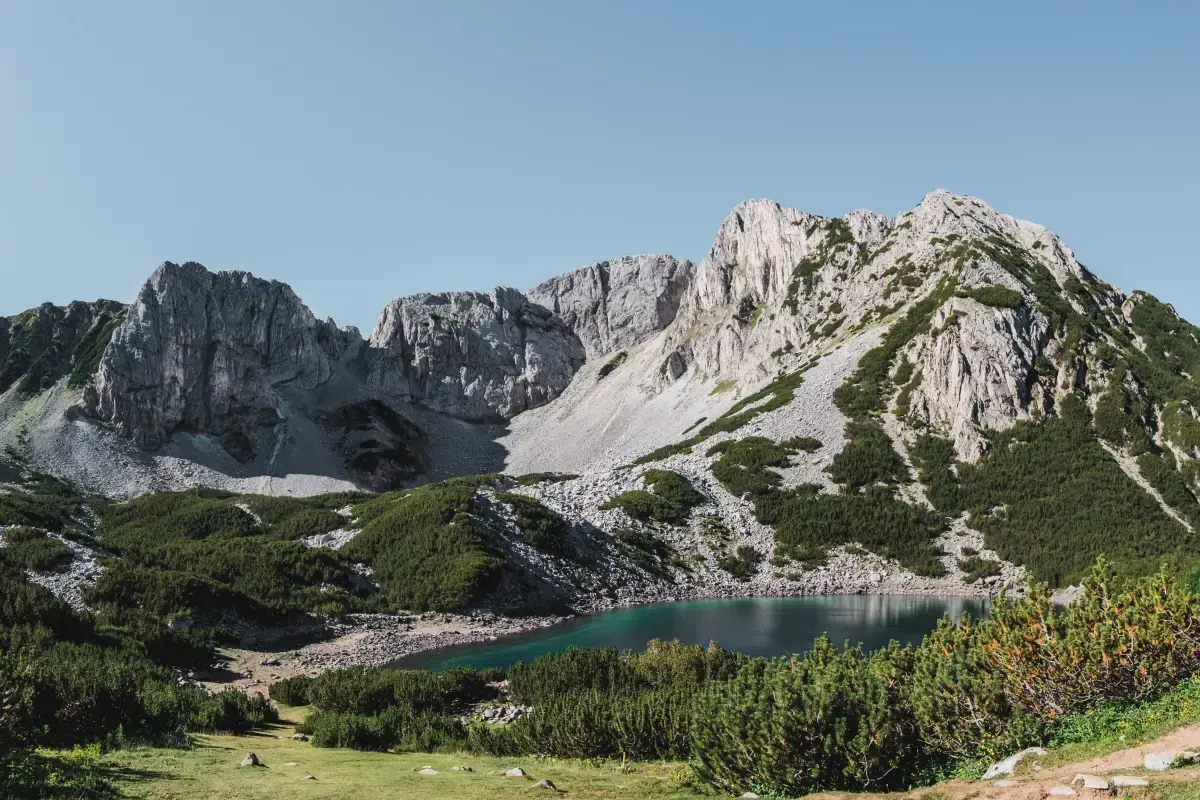- Anesthesiologist
- Obstetrician and Gynecologist
- Psychiatrists
- Surgeons
- General Internal Medicine
- Physicians
- Ophthalmologists
- Orthodontist
- Product Manager
- Artificial Intelligence & Machine Learning (AI/ML) Engineer
- Full-Stack Developer
- Cloud Architect
- DevOps Engineer
- Blockchain Engineer
- Software Architect
- Big Data Engineer
- Internet of Things (IoT) Solutions Architect
- Data Scientist
- Cyber Security Architect

Moving to Bulgaria in 2025
Step by step guide on migrating and relocating to Bulgaria in 2025?
Use our Guide to find all the moving information you may need if you are thinking of moving or working in Bulgaria.
People relocate to Bulgaria for a variety of reasons, some of which are economic, cultural, and social. Economically, Bulgaria has an attractive and growing economy. The cost of living is lower than many other European countries, and the Bulgarian real estate market is considered one of the best in Europe. Bulgaria also offers good prospects for career and business development, due to its low corporate tax, strong financial sector and foreign investment. Culturally, Bulgaria is known for its vibrant and diverse culture. Its long history, ancient monuments and music, folklore, festivals and cuisine attract visitors from around the world. Bulgaria is also home to beauty attractions like the Black Sea and the famous Rila Monastery. For people who are interested in exploring the past, Bulgaria also has a rich archaeological and historical background. Socially, Bulgaria offers a positive environment to live, work and play. It has some of the lowest crime rates in Europe and a warm and friendly culture. There is also the opportunity to make lifelong friendships through the extensive Bulgarian expatriate networks. Overall, Bulgaria is an attractive destination for those who are looking for a new home, career, or to explore its history and culture. All of these factors make it a great choice for those who are interested in relocating.

Gigs
Cost of Moving to Bulgaria
1. Visa: Depending on your citizenship, you may need a visa to be able to move to Bulgaria. Depending on what type of visa you need and when you plan to move, the cost of the visa can range from around 100 to 250 euros. 2. Transportation Costs: Flying to Bulgaria is relatively inexpensive, although fares can vary depending on the season and airline. You may be able to save on costs by taking advantage of discount fares offered by budget airlines. Other costs associated with transportation to Bulgaria include any additional fees for check-in luggage and taxes. 3. Accommodation: The cost of accommodation in Bulgaria will depend on your choice of housing. There are some very affordable apartments and hostels that cost as little as 200 euros per month. Of course, if you want more luxurious accommodation, prices can go up quite a bit. 4. Utilities: Utilities such as water, electricity, internet, and cable television can also add to the cost of living in Bulgaria. If you opt to get all these services, the cost can easily add up to around 200 euros per month. 5. Funds for Living Expenses: Depending on your lifestyle, you should plan to have at least 1,000 euros in your bank account when you arrive in Bulgaria. This is to ensure that you can pay for food and other living expenses during those first months. All in all, the total cost of moving to Bulgaria should not exceed the 1,500 euros mark. It is important to plan ahead and to have an idea of all the costs to ensure you have the necessary funds for your move. Good luck!

Jobs
Best Jobs in Bulgaria
One of the most popular jobs that migrants moving to Bulgaria apply for are IT professionals. These migrants normally come to the country with a strong set of technical skills, which makes them attractive to employers looking to fill technical roles within their organizations. The typical salary for an IT professional in Bulgaria ranges from 1100 to 2500 EUR per month. Another popular occupation that attracts migrants to Bulgaria is teaching English. While most applicants usually come with an advanced degree and/or experience teaching English, they can also find part-time positions such as teaching assistant or language tutor. Salaries for these roles range from 500 to 1500 EUR per month. Migrant workers with hospitality experience (such as bartenders or hotel staff) can also find many positions in Bulgaria. Salaries for hospitality staff tend to range from 500 to 1500 EUR per month. Finally, medical professionals can also experience plenty of job opportunities in Bulgaria. While the salaries are not as high as in other countries, they are still relatively attractive. For example, a doctor typically earns anywhere from 1400 to 3000 EUR per month.

Volunteers
Weather in Bulgaria
Bulgaria has a continental climate which is mostly influenced by the Black Sea and the Balkan Mountains. Summers are hot and sunny, lasting from late May until early September. During this time temperatures generally range from 18 - 33 °C (65 - 91 °F). Winters are cold, with temperatures ranging from -5 - 10 °C (23 - 50 °F). The mountains experience much more snow, where temperatures may drop down to -20 °C (-4 °F). Spring in Bulgaria is typically mild and is from mid-March to late May. Temperatures range from 10 - 18 °C (50 - 65 °F) at night to 23 – 28 °C (73 -82 °F) during the day. Rain is common during this time of the year due to the high humidity. Autumn in Bulgaria is usually mild and dry, lasting from late September to mid-December. Temperatures range from 9 - 17 °C (48 - 63 °F) at night to 20 – 24 °C (68 - 75 °F) during the day. Bulgaria has four distinct seasons that range from very cold winters to hot and dry summers. The nights can be quite cool during the summer and the days are generally warm and sunny. The mountain regions of Bulgaria experience much more snow in the winter than the lowlands.

Promote
Tax & Welfare System in Bulgaria
The Tax System The Bulgarian tax system is based on a progressive income tax, a corporate tax and value added tax (VAT). The progressive income tax rate is 10% on taxable income up to BGN 19,500 (approximated €10,000) and a top rate of 24% on taxable income over BGN 60,000 (approximated €30,000). Self-employed individuals are subject to a fixed rate of 10% income tax for all earnings up to BGN 19,500. Individual taxpayers are also subject to a 2.5% flat tax on incomes from movable property (e.g. shares, bonds, dividends, rent payments) and are exempt from taxes on foreign income. Corporate tax in Bulgaria is a flat rate of 15% on all taxable profits over BGN 200,000 (USD 106,000). This tax rate was reduced from the previous flat rate of 10%, in a bid to encourage foreign investments. Additionally, companies registered in the country are also liable to pay a local (council) business tax, which varies slightly depending on the region. VAT is levied at a rate of 20% and is charged on the sale of goods and services. Exports are exempted from VAT. Other taxes include excise taxes, motor vehicle tax and pollution taxes such as property tax, energy tax, natural resources tax and waste collection fee. Social Welfare System The Bulgarian social welfare system is governed by the State Social Assistance and Social Security Act, which provides social assistance payments to individuals, families and vulnerable groups in need. This includes benefits such as pensions, unemployment benefit, income protection, disability allowance and family benefits. Pensioners are entitled to receive an old-age pension and an additional pension supplement. The old-age pension is granted to people aged 63 or over who have made contributions to the social security system over their lifetime. The pension supplement is payable to pensioners aged 70 or over and is calculated as a percentage of their old-age pension. People who are unemployed are eligible to receive an unemployment benefit, provided they meet certain conditions. The benefit is equivalent to 70% of the average salary in the previous four quarters. Disability allowance is also available to people with a disability or those who are unable to work due to serious illness, who have made contributions to the social security system. The allowance is awarded based on a means test. Family benefits are also provided to families, who can receive income support depending on the number of children in their family, as well as child allowance for children up to the age of 16. Other social benefits such as housing allowances, health and maternal/parental benefits are also available. The Bulgarian social welfare system ensures that vulnerable groups in society receive the necessary financial support.

Holidays in Bulgaria
1. New Year’s Day (1 January): Celebrated on the first day of the New Year, New Years Day gives Bulgarians a chance to make the most of the New Year festivities with family and friends. 2. Orthodox Christmas Day (7 January): Orthodox Christmas Day celebrates the birth of Jesus and is one of the biggest religious holidays in Bulgaria. It takes place on the 7th of January, according to the Orthodox calendar, exactly nine months after St. Mary’s feast day (8 September). 3. Unification Day & Liberation Day (3 March): Celebrated on the 3 of March, Unification Day and Liberation Day commemorate the liberation of Bulgaria from Ottoman rule in 1878 and the unification of the Principality of Bulgaria and the Eastern Rumelian region of the Ottoman Empire in the same year. 4. Easter (April): Easter is the most important holiday in Bulgaria and is celebrated at the end of April by Orthodox Christians. Easter has a religious basis but is also a festive occasion and is marked with special traditional ceremonies and foods. 5. Bulgarian Education and Culture and Slavonic Literature Day/Day of Saint Cyril and Method (24 May): Celebrated by Bulgarians on the 24th of May, the holiday is dedicated to the Saints Cyril and Method, the two scholars who are credited with the invention of the Cyrillic script. It commemorates their work in creating a written language for the Bulgarians and for their contribution to the spread of the Bulgarian language and culture. 6. St. Thomas Day (6 June): a public holiday in Bulgaria that marks the day when the newly-baptized believers of the Bulgarian Orthodox Church were called upon to confess their faith in front of the local rulers. 7. Day of Silistra Uprising (12 July): a memorial day honoring the bravery of the rebels who fought against the Turks who occupied the city in 1810. 8. National Day (22 September): National Day is a public holiday in Bulgaria that commemorates the first proclamation of independence of the Principality of Bulgaria. 9. Burgas Uprising, or the Day of the Sinking of the Spanish Battleship Reina Victoria (27 September): Celebrated on the 27th of September, the holiday honors the heroes of the battle that took place on that day in 1829 and resulted in the sinking of the Spanish battleship Reina Victoria and the liberation of Burgas from Ottoman forces. 10. National Awakening Day (18 November): Celebrated on the 18th of November, National Awakening Day recalls the moment in 1878 when Bulgaria declared its Independence from the Ottoman Empire after centuries of occupation. 11. Christmas Day (25 December): Celebrated on the 25th of December, Christmas Day is the biggest holiday of the year for the Orthodox Christians in Bulgaria. It is a time for families and friends to gather together and celebrate the birth of Jesus with traditional foods and ceremonies.

Where to Live in Bulgaria
The most densely populated areas of Bulgaria are located in its capital city, Sofia. This is where the majority of jobs can be found, as well as the largest population concentration. Sofia is home to many of the country’s most important businesses, including industrial and commercial firms, financial institutions, media companies, and various government organizations. Additionally, Sofia is the home of the Bulgarian Academy of Sciences and the Universities of Sofia and National and World Economy. Surrounding Sofia are many other densely populated cities, such as Plovdiv, Varna, Burgas, and Rousse. Also, there are large towns and villages surrounding some of the major cities, offering many job opportunities and making them ideal places to live. Compared to rural areas, these cities and towns offer a higher concentration of jobs and are home to a large number of refugees and migrants, who often make up a significant part of the population in these regions. Other cities in Bulgaria which offer many job opportunities include Pleven, Veliko Tarnovo, Stara Zagora, Sliven, and Shumen. Many of these cities are home to important industrial firms and provide a variety of employment opportunities, especially in the manufacturing sector. Jobs in the service sector are also available in many of these cities, such as healthcare or hospitality. Additionally, smaller towns and villages throughout Bulgaria offer employment opportunities, often related to agriculture and tourism.

Sports & Recreation in Bulgaria
Popular sports and recreational activities in Bulgaria are mainly focused on outdoor activities and involve physical fitness. Football: Football is the most popular sport in Bulgaria and is played by people of all ages. The Bulgarian Football Union is the governing body of football in the country and is responsible for the organization of all levels including the top-flight league, the First Professional Football League. The national team has also competed at the FIFA World Cup and UEFA European Championship several times. Cycling: Russias high mountains, picturesque countrysides, vast valleys and world-class biking trails make it a great location for cycling. The World Cycling Cup, which is held in the country every year, attracts thousands of people. Tour de Bulgaria, the largest and most prestigious cycling event in the country, is also organised annually. Table Tennis: Table tennis is one of the most popular sports in Bulgaria and is enjoyed by people of all ages. Bulgaria is internationally known for its numerous table tennis champions, many of whom have won several world championships. The Bulgarian Table Tennis Federation is the official governing body of the sport. Tennis: Tennis is also popular in Bulgaria, with the Bulgarian Tennis Federation being the governing body. The Bulgarian tennis team has achieved many international successes in recent years, and tennis courts are widespread throughout the country. Skiing: Skiing is a popular activity in Bulgaria, especially in the winter months. The Bulgarian Ski Federation is the official governing body. Ski resorts have been developed in major cities and national parks, and are a popular destination for skiing and other Mountaineering Activities. Fishing: Fishing is a popular sport in Bulgaria, particularly on the Black Sea coast. The Bulgarian Fisheries Union is the governing body, and there are numerous clubs and organizations dedicated to the sport. Fishing is also an important source of economy. These are some of the most popular sports and recreational activities in Bulgaria.

Cost of Living & Housing in Bulgaria
Cost of living and housing in Bulgaria vary depending on location, standard of housing and lifestyle. Generally, Bulgaria is an affordable place to live and often referred to as having a low cost of living. The biggest expenses living in Bulgaria are typically food, utilities, and rent. Food costs in Bulgaria are among the lowest in Europe and you can expect to pay around 350 to 500 leva (around 175-250 euros) for a months groceries for a family of four. Utilities costs are also reasonable and vary depending on the size of your home, the type of house and the type of energy you use for your utilities. Generally speaking, electricity, water and other utilities range from around 50 to 100 leva (25-50 euros) a month. Rental prices, also vary greatly but most would be considered relatively affordable in comparison to other European countries. For a 2 bedroom apartment in a major city center, you can expect to pay around 400 to 700 leva (200-350 euros). Overall, if you are thinking of living in Bulgaria, you can expect to have a somewhat lower standard of living than many other European countries, with an average salary of around 500 to 800 leva (250-400 euros) a month.

Finding a Job in Bulgaria from Overseas as a Foreigner?
Use our Job hunting & job seeking guide to help your job searching easier.

The Best Rated Top 20 Recruitment Agencies in Bulgaria
When searching for a Job from Overseas, reaching out to established Recruitment Agencies can help in your Job Search in Bulgaria

What are the Best job boards in Bulgaria
Jobseekers searching for jobs in Bulgaria find the below job portals in in Bulgaria as the best job websites for finding employment in in Bulgaria
Best International Removals Companies to/from Bulgaria
When the move to Bulgaria gets closer, finding local and international removals companies that suit your requirements are critical. Find a list of the best companies Near You.

Expat info about living in
Don't just take our word for it.
Use the Best Forums in Bulgaria to obtain all the independent advise about moving, living & working in Bulgaria

Immigration Advice and Visa InformationBulgarian
Need assistance with obtaining the correct Visas and Work Permits in Bulgaria.
- Get expert advice to make the move to Bulgaria as easy as possible

Find Trusted Local Home Services
When you arrive, understanding the Best Local Services to help with your odd jobs and tasks around the home is essential.

Best Areas to Live in Bulgaria
Popular towns, cities and regions that are proving popular with migrants moving to Bulgaria
Study and Higher Education in Bulgaria
Search our list of all universities in Bulgaria to help your reach your educational goals.
- Find the Best University in Bulgaria that suits your needs

Featured Locations
Frequently Asked Questions
- Construction
- Business Analysis
- Web & App Development
- Animation
- Nursing
- Teaching
- Engineering
- Marketing
- Plumbing
- Carpentry
- Software Engineer
- Data Analyst
- Hospitality Staff
- Builders
- Full-time
- Part-time
- Permanent
- Freelance
- Gig Jobs
- Contract
- Weekend work
- Out of Hours
- Night shift
- Casual
- Temporary
- Remote
- Work From Home
- Work From Anywhere
- Telecommuting
- Flexible
See here for more Help & Support questions



